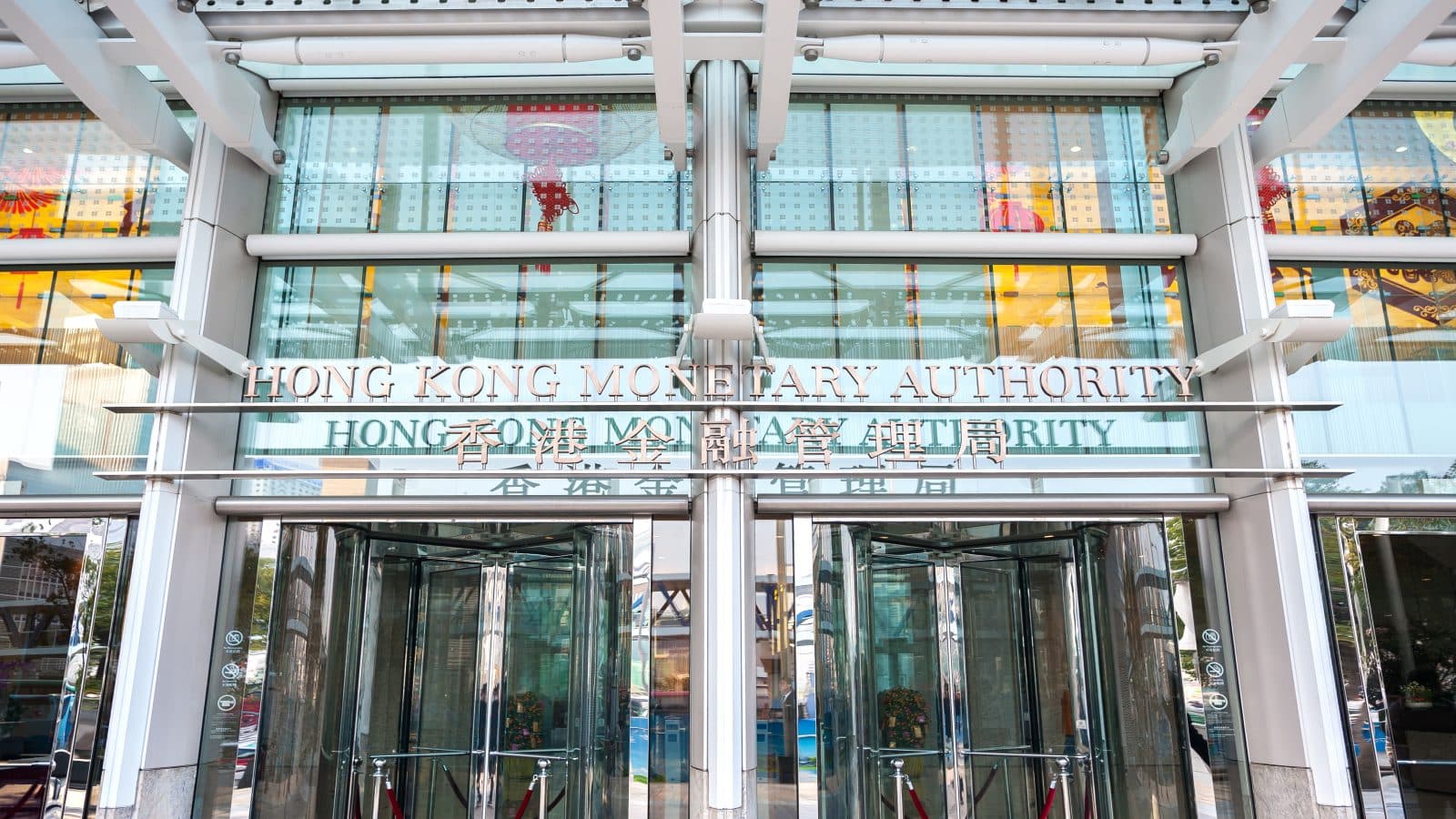Hong Kong Restricts Trading of Crypto ETFs to ‘Professional Investors’ Only
Hong Kong’s financial regulators argue crypto spot ETFs pose considerable risks and have justified their move as protecting retail investors

Hong Kong Monetary Authority. Front entrance of Two IFC skyscraper, Hong Kong. Credit: Shutterstock
- Financial regulators in Hong Kong have limited the sale of crypto spot ETFs to professional investors only
- Professional investors in Hong Kong are defined as having a portfolio of no less than HKD$8 million (US$1 million)
Financial regulators in Hong Kong have issued new rules restricting virtual asset intermediaries from offering crypto spot exchange-traded funds (ETFs) to retail investors.
The Securities and Futures Commission (SFC) and the Hong Kong Monetary Authority (HKMA) said their motive is based on protecting investors due to “risks associated with investing in virtual assets,” according to a joint circular on Friday.
While that view is not entirely novel, restrictions placed on crypto intermediaries selling “complex products” to retail investors are new. Though crypto spot ETFs have been targeted, the “professional investors only” restriction is not being imposed for the distribution of futures-based crypto ETFs.
Under the country’s Securities and Futures rules, professional investors are defined as having a portfolio of no less than HKD$8 million (US$1 million).
“In the case of virtual asset futures contracts traded on a specified exchange which is a regulated futures market, trading is governed by conventional rules. Pricing transparency and potential market manipulation may be less of a concern,” the circular reads.
Crypto ETFs typically track a basket of digital asset prices, allowing an investor to diversify their crypto portfolio while forgoing the need to hold any individual assets. Canada, Brazil, parts of Europe and Dubai have already launched crypto ETFs. Futures-based crypto ETFs, on the other hand, track the price of futures contracts speculating on the future price of bitcoin.
The US approved its first bitcoin futures-based ETF back in October, signaling to the rest of the world that while it is not yet ready to greenlight a crypto spot ETF, futures-based products offer satisfactory investor protections as the ETF mediates with brokerages under the eye of regulated jurisdictions.
Hong Kong’s regulators also set out guidance on spot ETFs requiring a “knowledge test” so the intermediary can either accept or block an investor’s trade after determining whether the investor is aware of how the spot ETF product works.
“If a client does not possess such knowledge, the intermediary may only proceed if, by doing so, it would be acting in the client’s best interests and it has provided training to the client on the nature and risks of virtual assets,” the circular reads.
Get the news in your inbox. Explore Blockworks newsletters:
- The Breakdown: Decoding crypto and the markets. Daily.
- 0xResearch: Alpha in your inbox. Think like an analyst.






